After nearly three years our project team successfully completed the Cross-Cultural Skills Europe (CRUSE) project. Despite challenges posed by the pandemic, some great outputs were produced which can be viewed on the project website and video and narrated case studies are hosted on the projects YouTube channel. The case studies and supporting materials covered some fascinating topics and included some interesting and iconic organisations, which has led to positive feedback and a positive final project evaluation.
Blog
Doctoral Research Methods Videos
Five years of delivering the Research Methods and Design module to DBA cohorts has led to the gradual development and accumulation of too much good material to include it all in the teaching time allocated. Plus, after five years the module would benefit from a refresh to ensure that it is still innovative and fits the needs of the diverse cohort. I decided to flip the classroom for a couple of core subjects, which are picked up in less detail in earlier modules and where greater application of the topic would be helpful. To support this, I recorded a mini-series of three videos on research philosophy. The first video recaps some of the key distinctions implicit within research philosophy. The second video builds on this and discusses the opposing views and assumptions held within positivism and interpretivism, and how these commonly align with data collection methods and analysis. The final video discusses four more research philosophies; realism, pragmatism, constructivism, and phenomenology, the views and implicit assumptions within each one, and the research methods and analysis they are commonly aligned with. The second topic I decided to initially cover was research design and the application of mono, multi and mixed methods research. In addition to embedding the videos in the course’s virtual learning environment, I have created and posted them on a new YouTube Channel to make them publicly available. The development of the channel is still a work in progress and the goal is to produce more videos as I continue to innovate the pedagogic delivery of the module. The current playlists can be accessed through the links below.
Two Trips to Kyiv Seasons Apart
It had been just over a year since leaving Kyiv in June 2020, at the height of the pandemic, that the opportunity arose to return for three weeks. This opportunity was offered midway through a month in London, meaning it would involve me being away from home for nearly two months over the summer. The sense of adventure and the feeling of unfinished business led us to jump on the plane (or a couple) to go back to Kyiv. The visit coincided with the 30th anniversary of the modern founding of Ukraine, which was why in part we went. This meant that there was a buzz in the city and events organized during our stay. However, I still managed to attend a home Dynamo Kyiv game and a Shaktar Donetsk game, as the latter have moved their home games to Kyiv since we left Kyiv. The biggest change in Kyiv was the introduction of rental electric scooters dotted around the city. The introduction of the sharing economy had hit in a big away! There were five plus different companies offering scooters, using the normal scan the QR code on the handlebar process, plus numerous similar bike offerings. Whilst Kyiv was not the city I would have thought most suited to this innovation, in terms of infrastructure such as limited bike lines and rather rough and wonky pavements, it did make the city even more accessible. There were also limited geofenced zones compared to some other cities, which made navigating the city a breeze. When returning to a place I also like to ensure that I do something new, and one thing which I had never done was visit any of Stalin’s underground tunnels. These tunnels were built under the orders of Stalin, who was concerned that if Kyiv was attacked and the bridges over the Dnieper River destroyed, the Soviet army would not be able to move weaponry and troops around the city. The tunnels never got fully completed and brought into service, but their entrances can still be found on the banks of the river, and on the islands. So, with the help of the new scooters, I ventured out to hunt one of the tunnels down. Once located, the tunnel entrances themselves were rather underwhelming but considering the effort and process of their construction in that period, are interesting. Whilst the tunnels were never finished; the size and scale of the secret project highlights the ambition and fear of the time.



After a visit to Kyiv in the summer, a second opportunity arose to visit it again in the winter. The travel was last minute and involved travelling a rather unconventional flight path of Washington – Newark – Zurich – Vienna – Kyiv on Christmas Eve (and into Christmas day!) but provided the opportunity to visit Kyiv in the snow again. The first thing I noticed was the disappearance of all the scooters for the winter, which whilst making sense, highlighted another challenge of launching them in such a seasonal location. Seeing the same sights in such different conditions is always interesting, as was being in shorts in the summer and then so bundled up only 4 months later. The time of year meant that there was no football to attend and there was a need to find some warm places to stop and warm up in when exploring the city. The Kyiv Food Market was particularly nicely lit up and always has a good selection of food and drinks. During the visit, I decided to head out to the Art-Zavod Platform on the Left Bank, a short walk from the Lisova metro stop and the Kyiv National University of Trade and Economics. The area is an Arts start-up hub and like all good start-up ecosystems has a coffee roaster and the 2085 beer brewing operation, a craft brewery which has been growing in prominence within Ukraine. It is interesting to see how the entreprenurial ecosystem is growing and developing within the Ukrainian context. The area is reminiscent of the 798 district in Beijing and the repurposing of old manufacturing buildings into art studios and incubators. Whilst Kyiv is a very different experience in the bitter cold and snow, there are always interesting things to visit, and do, no matter the season.

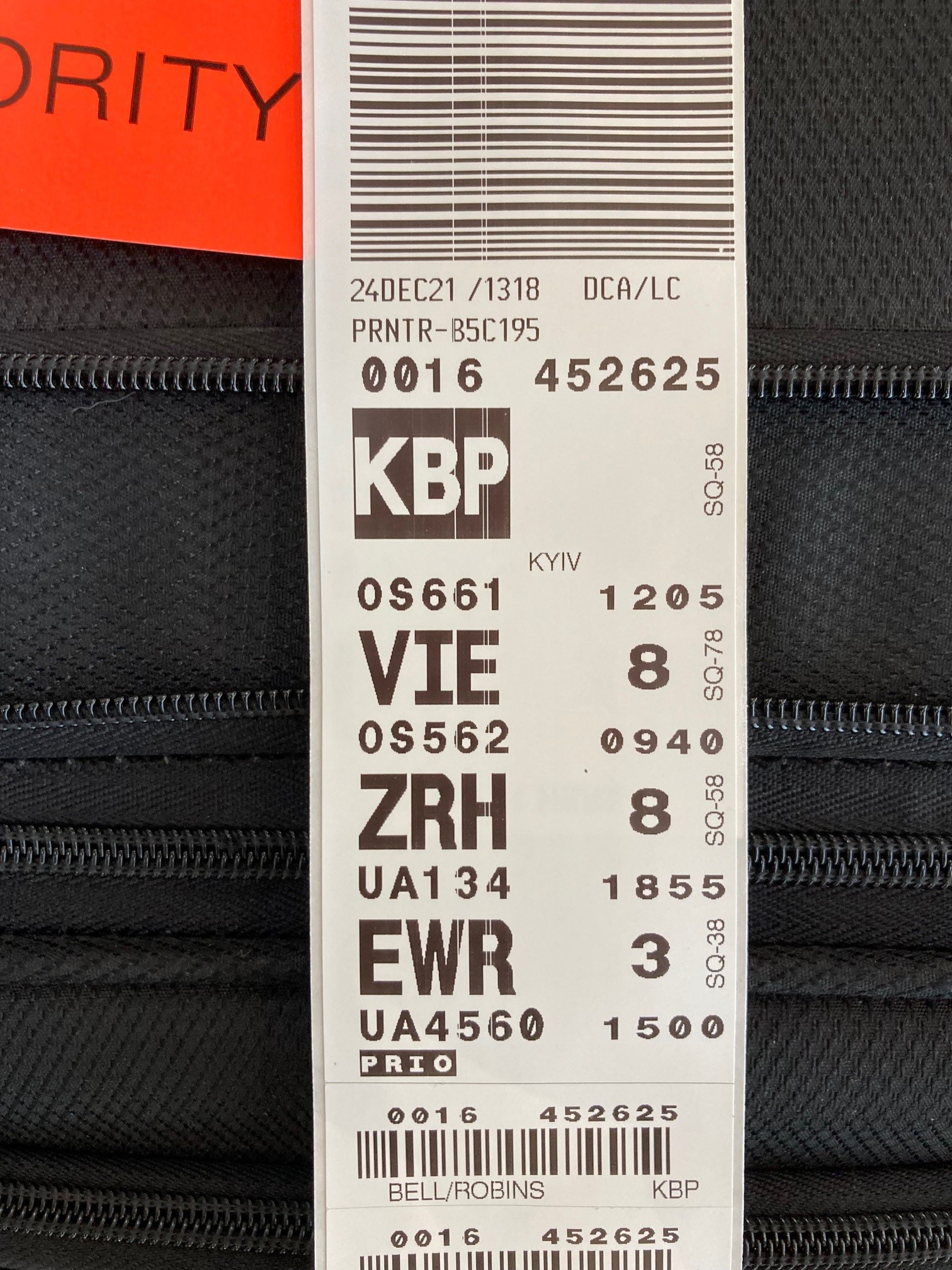

2020 Emerald Literati Awards
This morning I received a pleasant surprise to discover that a paper I published with colleagues had received an award. ‘The Father’s Role in Supporting the Son’s Business Knowledge Development Process in Vietnamese Family Businesses’, published in the Journal of Entrepreneurship in Emerging Economies, had been selected as a Highly Commended Paper in the 2020 Emerald Literati Awards.
I received a similar award in the 2017 Emerald Literati Awards for ‘Unpacking the link between Entrepreneurialism and Employability: An assessment of the relationship between entrepreneurial attitudes and likelihood of graduate employment in a professional field’, published in Education + Training. It is always nice to know that others consider your work to be of value and interest, and the paper has now been made freely available for six months.
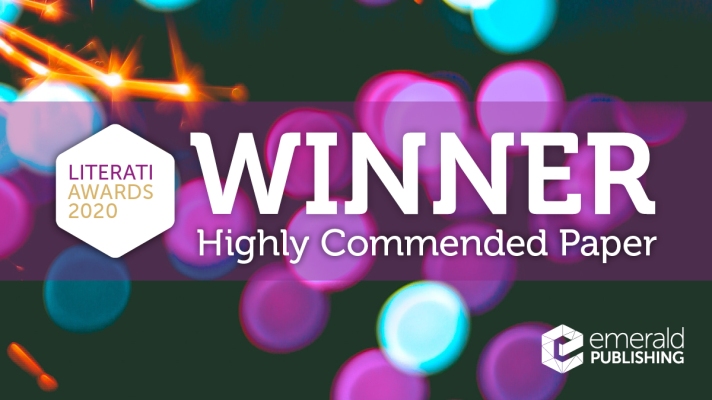
2020 Emerald Literati Awards
Things I have Learnt during the Last Six Years Working and Living Overseas
I am a great believer in the value of reflection, as you will see from my previous research. After six years living and working in China, Russia and Ukraine, whilst also holding down a full time job in the UK, I feel that I have learnt so much and I would like to share my reflections on what I have learnt. What I have learnt is wide ranging, relating to working in the countries I have lived and worked in, but also includes reflection about the daily experience. Some of the eclectic things I have learnt are discussed below, in no particular order:
Every Country has a Different Broom
Having lived and worked in five countries (China, Russia, Ukraine, USA, and UK) in six years, one of the things that astounds me is there is no single broom or brush for cleaning the floor. There are so many different sizes, designs, and angles. For example, the brooms in China are small and angled, whilst in Russia they are bigger and straight. But in Ukraine they are angled and tall. In the UK, I am not that familiar with brooms as most floors are carpeted, but I was a janitor for a year in Tesco and the bristles were straight. In the USA brooms have straight bristles and handles, more like the UK. But it has amazed me that every apartment we have moved into has had a different broom.
What Constitutes ‘Good’ Work
I have been surprised by the range of understanding and interpretation of what constitutes ‘good’ work, in the places I have lived and worked. I was brought up in the UK system, which like the US is task focused. Other countries are more time focused, whereby the time you spend on a task is more important than the quality of the output itself. In such cases work is scheduled around time not outputs and the time must be filled. This is different to my flexible working pattern, where I work unique hours and most people do not mind as long as I complete what needs to be done.
Economic Principles do not Always Apply in the Same Way
I found the idea that the basic economic principles that we are taught do not apply universally. I was, of course, aware of the different economic systems which exist in China, Russia, and Ukraine, but not that economic concepts that we take for granted in the UK and US do not always hold true. The most obvious way in which I saw this was in the lack of economies of scale when shopping in supermarkets. For example, if you buy a multipack of beer in Walmart or a local domestic supermarket in China you would commonly be charged for the price of an individual beer times the number of beers you have. A lack of economies of scale for the end consumer could also often be found in Ukrainian shops to a lesser degree. Of course, when broken down, it can be argued why should a multipack be cheaper than buying individual units, but I have been conditioned to believe that it should. The concept of buying many things by weight rather than by piece in Ukraine always fascinated me, as it made it harder to know what an ice cream or cake would cost. It seems logical and a more direct reflection of value, but not really consumer (or worker) friendly, as there are many more steps required.

No Multipack Discount 
Single Bottles
Entrepreneurship and Informal Entrepreneurship
Whilst living overseas I have noticed a difference when it comes to how entrepreneurship and informal entrepreneurship is valued. This is probably not a surprise, but in the more developed countries I have lived and worked in I have noticed a desire to formalise entrepreneurship. Formalised entrepreneurship helps to bring in more tax revenue and benefits the wider economy. China really leads the way here, and the promotion and development of entrepreneurship really is impressive.
Public Buildings and Spaces are Impressive in Former Soviet Countries
The development of public buildings for public use in former Soviet Countries is impressive. Whilst the function within these building might not be world leading, in Moscow and Kyiv there are some wonderful public spaces. I think many countries around the world could learn from the museums, theatres, monuments, and metro systems that these cities have. The dedication to the public good is impressive.
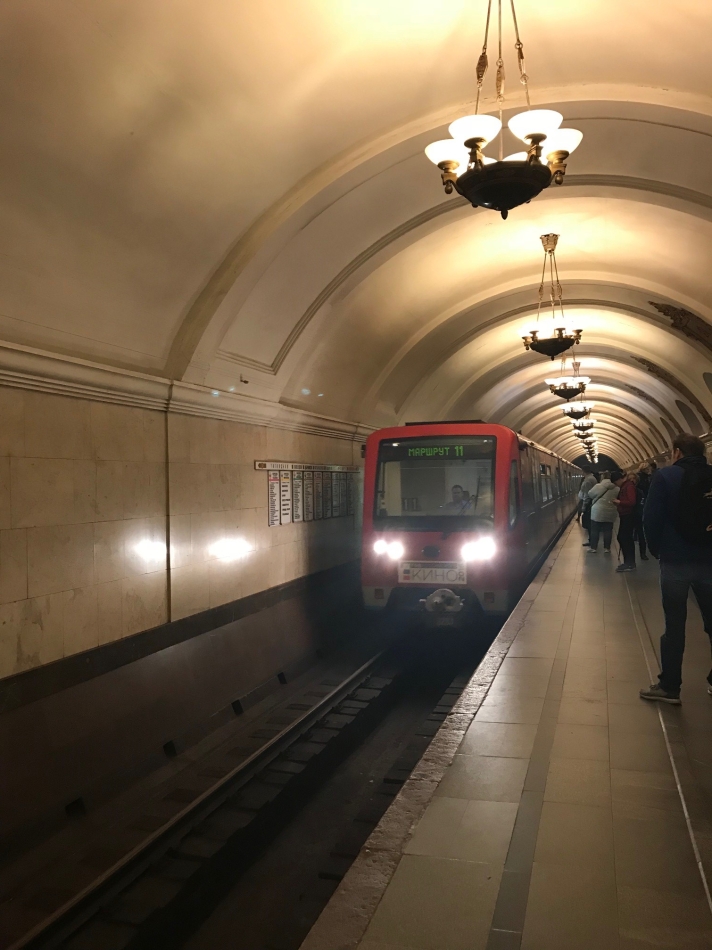
Moscow Underground 
Expocenter of Ukraine 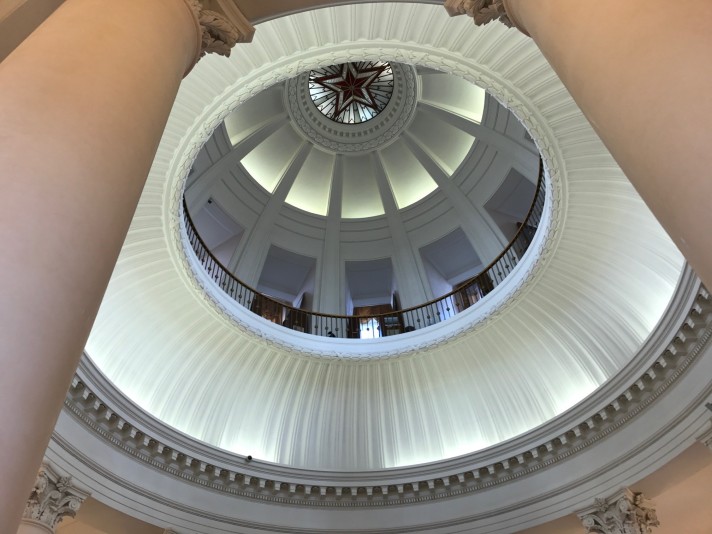
Moscow State University’s Seven Sister
The Desire to be Different/Unique
Contrary to what the academic literature would suggest, I have found that in some societies the idea of being unique and being a ‘VIP’ is very powerful. When boarding a flight with elite status/business class ticket I like to be the last one on, to take advantage of the airport lounge and their facilities, but the power of being a VIP is very strong in some cultures. Indeed, you will often see a VIP phone number presented to the general public in some countries, which by definition means its not a VIP number if everyone has access to it. This demonstrates the power and perceived psychological benefit of being an individual in some countries.
Reserving Tables for Hours and Having no Custom
My final reflection is on the process of reserving tables in bars and restaurants and the willingness to reserve a table the whole night from 5pm through to 1am, even when the reservation is only for 9pm through to 1pm. Whilst this in part probably comes from living in the centre of three expensive cities, where many exclusive and luxury hangouts exist, it underlined to me the importance and value of having a booking somewhere and it being at an ‘it’ place. It also always seemed strange that venues would turn away custom when they had a booking three hours later. I would often have to convince servers to let me stand in a corner or at the bar to have a quick snack and drink at 5pm because they had tables booked later that night. In this context I am sure it came largely from the balance between the local wages and the food and drink on offer, and therefore reservations being so valuable. I will always remember sitting in odd corners of completely empty bars and restaurants which remained empty until much later in the evening when I would be home in bed.
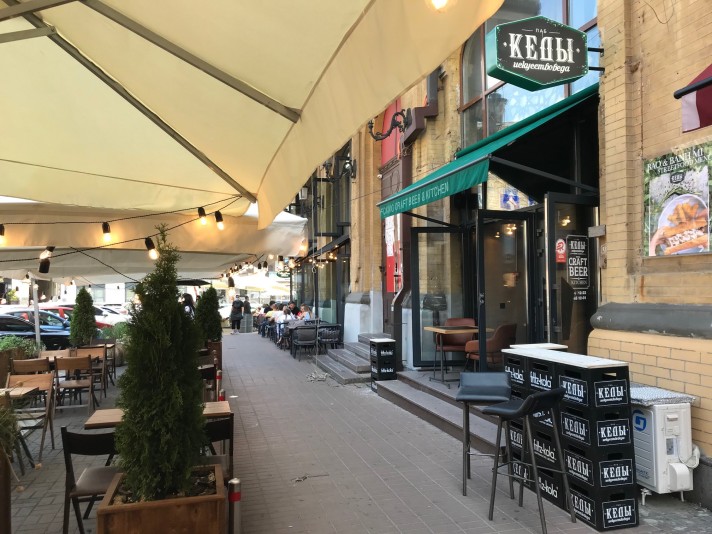
Empty Bars 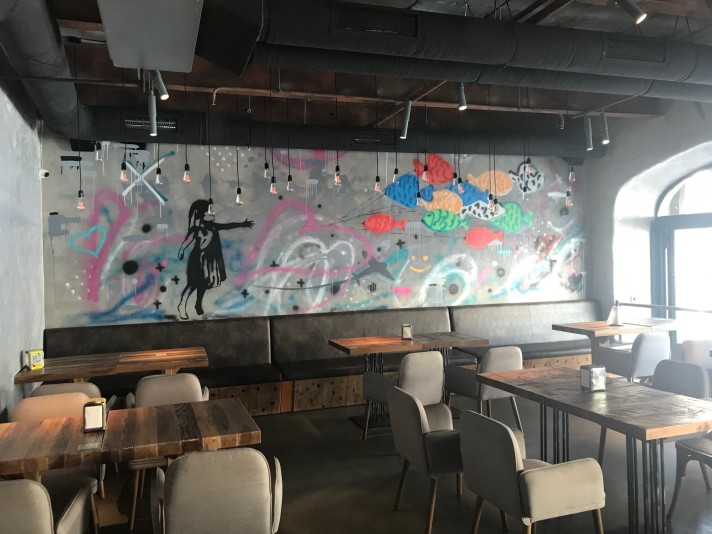
Empty Restaurants
The Value of Wealth and Money
The value of wealth and money and the willingness to display it, is different in the countries I have lived in. In some countries legitimacy is given to those with wealth, whilst in others wealth is held but not explicitly displayed. We have been gifted the wonderful opportunity to live in the city centres of Beijing, Moscow, Washington DC, and Kyiv. In all of these cities Washington DC had the least sports cars and roaring engines. In fairness, maybe American wealth does not come to DC, but rather New York, San Francisco, LA or even the Finger Lakes.
Logistics are impressive and redesigned for the Context in China and Ukraine
I was always amazed by the efficiency of Chinese and Ukrainian distribution companies. The Chinese logistics system is amazing, but the Ukrainian system is also good. These systems always highlighted the inefficiency in the UK and USA systems, possibly related to latecomer advantages.
Collaboration
I have found that the concept of collaboration is different in every country and maybe, not so surprisingly, is influenced by institutional direction. I have worked and collaborated with top universities in China, Russia, and Ukraine, and each has had a different outlook when it comes to collaboration. I have previously mentioned how beneficial I have found collaboration with Chinese colleagues, but I have learnt collaboration is impacted so much by national policies and directives.

Collaborations 
More Collaborations
People Relate to the Same Brands Differently in Different Countries
The importance of branding and how people relate to it and perceive brands was demonstrated to me by living to numerous countries. It is a common adage that organisations want to standardize their brands and balance their product adaptation and standardization, but when living in several very different countries it is easy to see that this is potentially more challenging than I first realised. It is easy to see brands and what they stand for as one entity, but marketers have limited control of how individuals view and perceive their brands, so brands are often viewed differently in different countries. Plus, often when brands are viewed one way in a particular country, it is often easier to run with it, than to try and realign and contradict peoples’ current perceptions.
Big American cars in Russia and Ukraine
I was always amazed by the number of big US cars in Moscow and Kyiv. There were many more big US SUVs in Moscow and Kyiv than you would find in Western Europe. I don’t know whether this is related to the demand for US vehicles or the driving conditions being more like the snowy US winter roads, but the driving and traffic felt much more like being in a US city, rather than a European one.
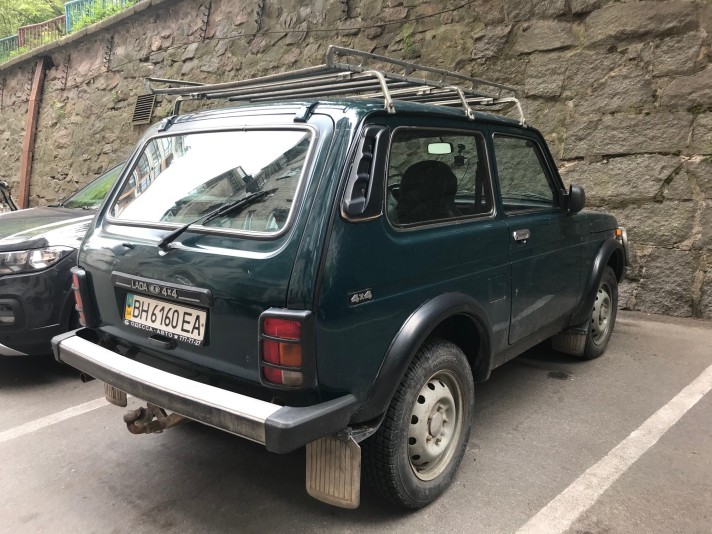
Not really relevant to my point, but I wanted to showcase this 4×4 Lada
Six Years Away: Kyiv, Moscow & Beijing
This summer brought to an end six years of being away, living overseas and being a digital nomad. These six years were spent with two and a half years in Beijing, one year in Moscow and two years in Kyiv, with six months in DC between Moscow and Kyiv, after being declared persona non grata in Moscow. During the six years, I learnt to love and enjoy parts of these metropolises, so I wanted to write about what I enjoyed in each of these cities. In the coming weeks, I also plan to write about what I learnt in each of these cities and the unique contexts that they provide. I really enjoyed Kyiv and found it an amazing, vibrant, and fun city to live. I will forever be grateful for my experiences in Beijing and all the people I met there. Although I will always remember Moscow and am glad of the year I spent there, the context of the sanctions and being expelled with only seven days to pack will always influence my reflections of the time spent there.
So after taking some time to reflect on each of these cities, I want to discuss the positives that I will take from each city and the experience there, as I believe that our experiences make us the people we are.
Kyiv
I think it is an honest reflection to say that Kyiv was my favourite foreign city of the three that I lived in over the last six years. It was the most vibrant and relaxed and felt the most similar to home. I enjoyed the seasons, there were four clear seasons throughout the year, with lovely springs and autumns, and relatively pleasant summers and winters. Kyiv was a friendly city, where I was happy to attend football matches, even big European games. I held a Dynamo Kyiv season ticket during both years, and whilst these were not successful years for the club, I always felt welcome and enjoyed attending the games. It was a bonus to see Champions League qualifiers and Europa League games! There was also a great craft beer scene, and I always felt relaxed and comfortable going to small bars and pubs despite being unable to speak any Ukrainian. I will also be grateful for the welcome I received within Kyiv at both the football and bars. The architecture in Kyiv is interesting, and it was great to be able to walk past wonderful sights and feel part of the city. I will miss Kyiv, and I am grateful for our time there and living in the city centre.

Dnieper River and Footbridge to Trukhaniv Island 
St Andrew’s Church 
View over Podil
Moscow
Living in Moscow will always be an experience that was tainted by how our time ended there, although I will always be grateful for the experience. The grandeur is genuinely spectacular. I enjoyed being in the city centre and walking through Gorky Park and past the lovely streets in the city centre. The long nights and short days are something unique to experience but were tough when living there. The metro is a fantastic experience, and you can get lost in its beauty. On a practical note, both the metro and airport express are super-efficient, which is essential for an individual commuting back and forth to the UK. Beyond how our time in Moscow ended and the political strife we experienced whilst there, the thing I will always remember is the sound of the snow clearing teams. It would start at 8pm and go on until 7am, and the sound of shovels grating on tarmac roads and pavements will always take me back to Moscow. I will also always remember some flights out of Moscow, where I could not believe that planes were going down the runway to take off due to the snowfall, particularly on my way back to defend my Education PhD at Huddersfield.
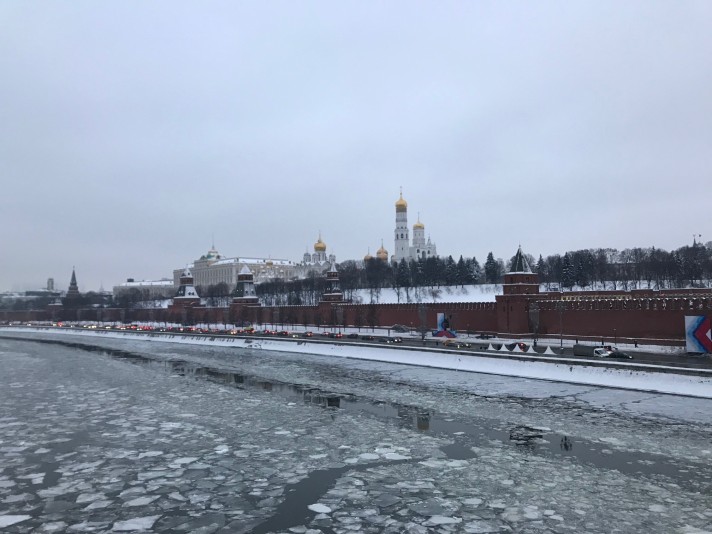
Moskva River & The Kremlin 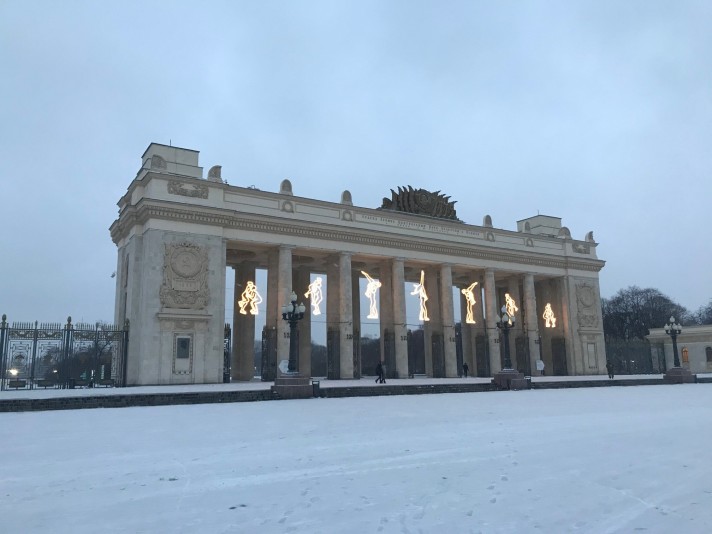
Gorky Park 
Resurrection Gate
Beijing
Beijing will always be the first city where our family put down roots. It has a unique buzz, and I think we all learnt so much. I am truly grateful for our time there, as it set up a theme of my research, and I managed to build more collaborations there than anywhere else, due to the desire for research and development. I still enjoy going back to Beijing to see the constant development taking place. Since we have left, I still have connections that take me back, which I am grateful for. The willingness to collaborate has always been more significant in Beijing. During my time in Moscow and Kyiv, I still found myself turning back to China. Some of the modern breweries in Beijing also opened my mind to beers beyond standard lager. I am sure it was a time and a place, but Jing-a will always be a special place for me.
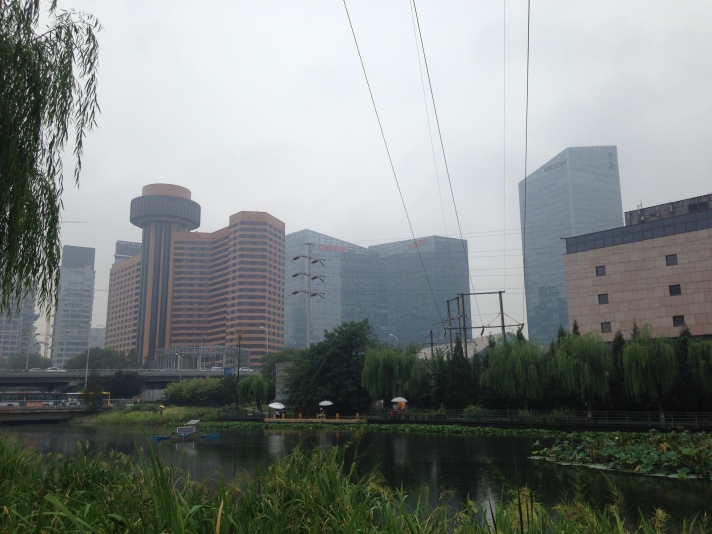
Liangma River 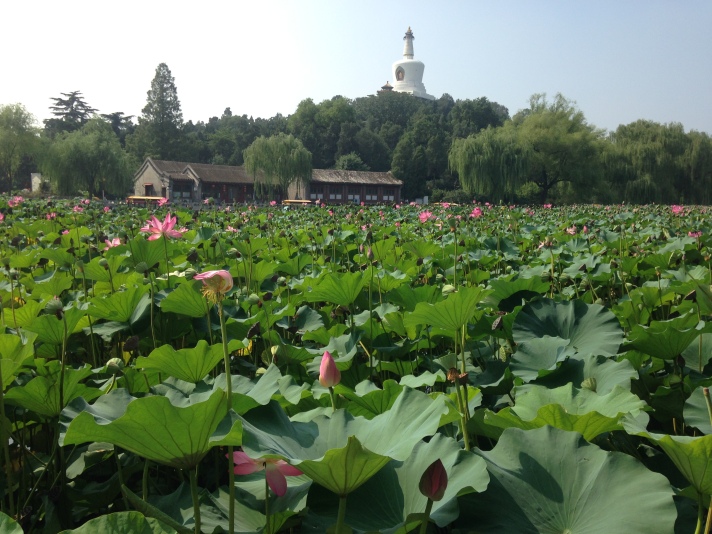
Beihai 
Liangmaqiao
Kyiv’s Best Beer Spots
As our time in Kyiv and 6 years on the road was coming to an end, we decided to do one last cycle of the best beer bars and locations in Kyiv. The truth is this became a rather stretched process and numerous locations were visited several times during the process of packing and preparing to move. Kyiv and Ukraine has some great craft breweries and spots to relax, so we wanted to keep enjoying these one last time. As we visited each of the spots, we took some notes and photos to share our thoughts. So in this post you will find our thoughts and recommendations for our top locations to sip craft beer in Kyiv. Unfortunately, these visits aligned with Covid restrictions, so some of the photos strike a more somber tone and we missed out on a couple of places which were closed, so did not make the list below.
Central Location
Tsypa- inside Besarabsky Market – Bessarabs’ka Sq
If you are not looking for a glamourous location for a beer, this is a great choice. They have a range of Tsypa beer on tap and normally carry a selection of bottles from a few Ukrainian suppliers. The location is more like a cabin in the market, so it is cosy and small, but you can pick up a pint of the cheaper craft beers like an ale or weizen for just over a pound or a Plombir milkshake IPA for £1.50. Plus it is an interesting experience to sit in Besarabsky Market and watch the world go by. This became a regular location for me on the way to the Olympiyskiy stadium.

Besarabsky Market 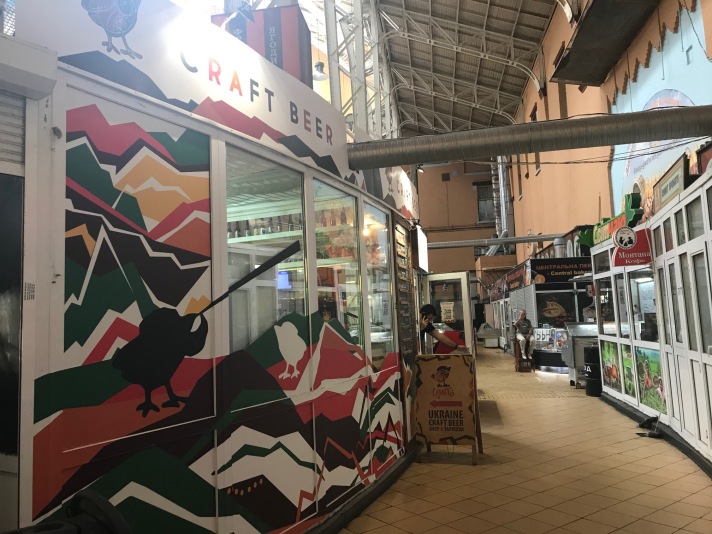
Tsypa 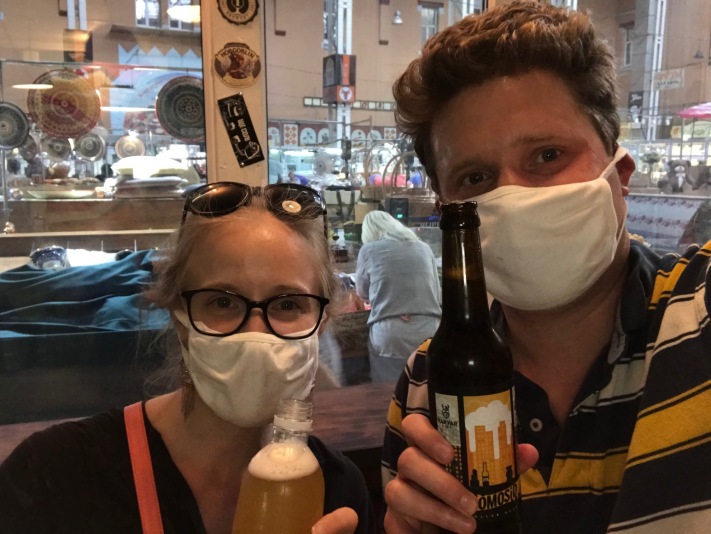
Tsypa- inside Besarabsky Market
Mokri Vusa / Cat Bar- Tarasa Shevchenko Blvd
This become a regular staple of ours that we have informally labeled the cat bar as the logo has a cat in a pint glass. It has a wide range of local craft beers, a reasonable number of imports from Europe and the US, normally a cider, and a cocktail menu. The beers are not the most competitively priced in Kyiv, but the domestic craft beer is still reasonable. There is also a wide range of food offered and the normally the place is not packed. Whilst nice, clean, and modern, it can feel a little sterile at times.
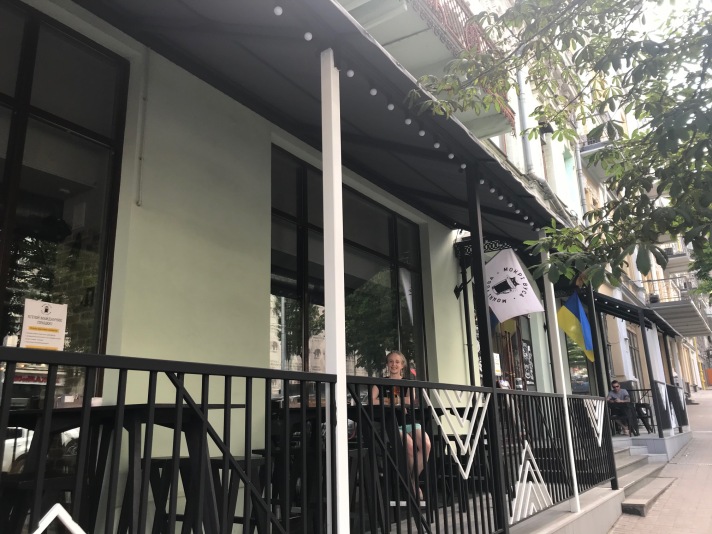
Mokri Vusa Patio 
Mokri Vusa’s Cat in Pint Logo 
Inside Mokri Vusa
Just Beer Bar (JBB) – Hospitalna St
A short walk from the center and there are a lot of beers on the menu, although there often seems to be a reasonable amount out of stock so have a few top choices ready when you order. They have a couple of Ukrainian craft JBB-branded beers, but the menu is mainly imports. The bar has a large capacity and it has lots of sports screens, but the service is often slow. It is a good place if there is a particular game you want to watch as they show different games on the different screens. It has slightly odd decor, mixing genres of Germany, Ireland/UK and the US, but hey what do you expect from a slightly cliché Ukrainian international genre sports bar. The bar is often busy with away soccer fans on European football night given its proximity to the Olympiyskiy stadium, so can offer a good vibe or not, depending on what you are looking for. It is normally smokey inside, so reminds me of past times, which thankfully are gone.

Just Beer Bar 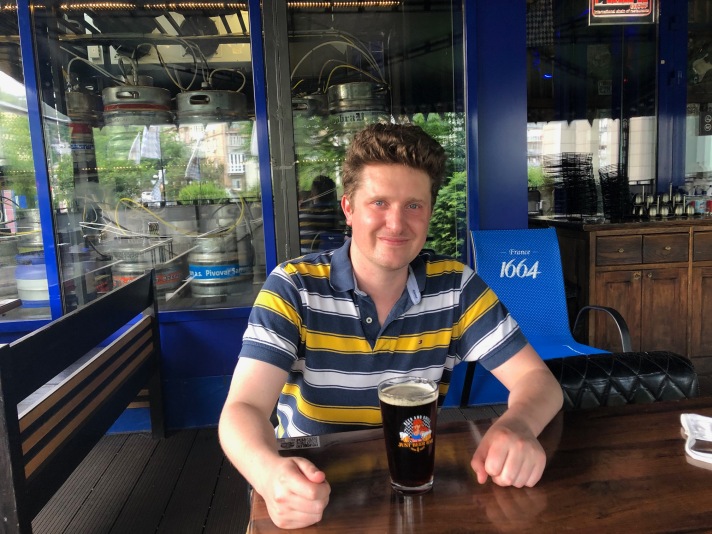
JBB Patio
Podil District
Punkraft – Ihorivska St
You’ll step down into a basement bar that is both hip and pricey (for Kyiv). Old-school arcade and pinball machines are there to entertain you and neon lights illuminate your stay. Order a domestic pint and you’ll have enough left for a snack, which are tasty, but an import may empty your beer funds. One could argue it’s a little ‘too cool,’ but it’s a great place to take visitors who want a taste of how cool and trendy Kyiv can be without being ‘too’ anything.

Punkraft 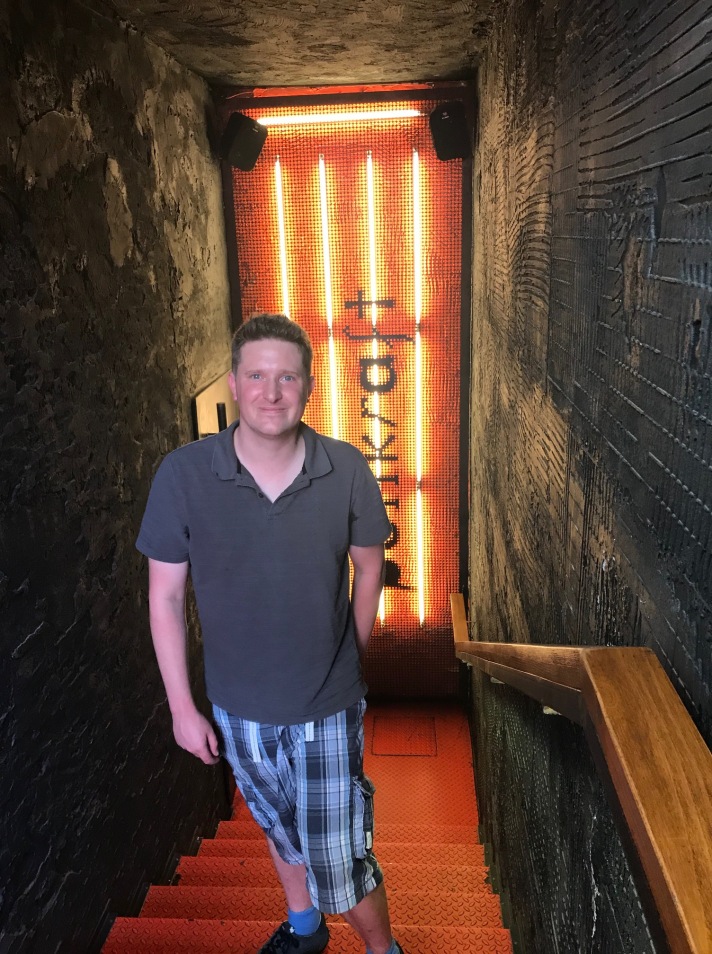
Punkraft Stairs
Gonzo – Kostiantynivska St
Another basement but with a minimalist approach. Bare walls and cool colors both welcome you and tell you that you’re somewhere that people take themselves seriously. Gonzo is also a brewery so you can get their branded beer fresh from the tap or grab a few reasonably priced bottles to take with you. They are not afraid to take some chances with their beer varieties and you can find some fun and unique brews such as grape milkshake IPA. Their food menu is not huge but quite varied such that you may think they have stretched themselves too far. However, everything we tried was of good quality and very tasty. In addition to all their beers, they offer many choices for non-beer drinkers with a satisfying cocktail menu.

Inside Gonzo 
Gonzo Stairs
Dux Bar – Spaska St
A tiny place you could almost walk right by if not for the huge sign outside beckoning you in. This establishment features beers from KF Brewery and about 6 inside seating options. A few additional tables are outside on the sidewalk where the people watching is calm but still interesting. KF Brewery have a wide range of beers, some of which are on tap, along with some guest beers. Many of their beers are relatively pedestrian, but they have some crazy and interesting flavoured beers such as their Mint Double Milkshake IPA and Blueberry Black IPA, which are well worth a try.

Dux Bar 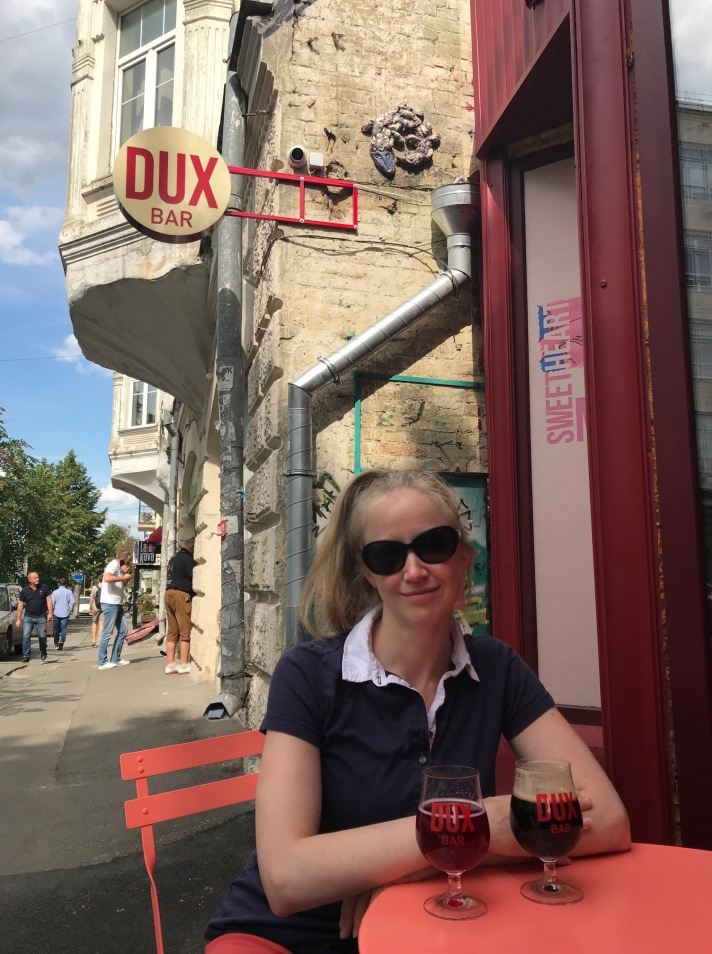
Dux Beer
Slightly Further Removed
Varvar – Saksahanskoho St
This bar/restaurant offers a huge outdoor deck for seating and a very nice interior, which is why we think it’s the best all-around place for venue quality at a reasonable price. It offers great people watching from the deck, but the flip side is that you are seated quite close to the road. A wide range of beers will pique your curiosity, and you can stock up on bottles to-go. The big trade-off is that it is a reasonable walk from the city centre, so plan to take some time here, as the next bar won’t be next door. However, there is a large food menu, so you can make an afternoon of it if you are so inclined. Your walk back can go through the beautiful botanical gardens on the way either downtown or to the metro.
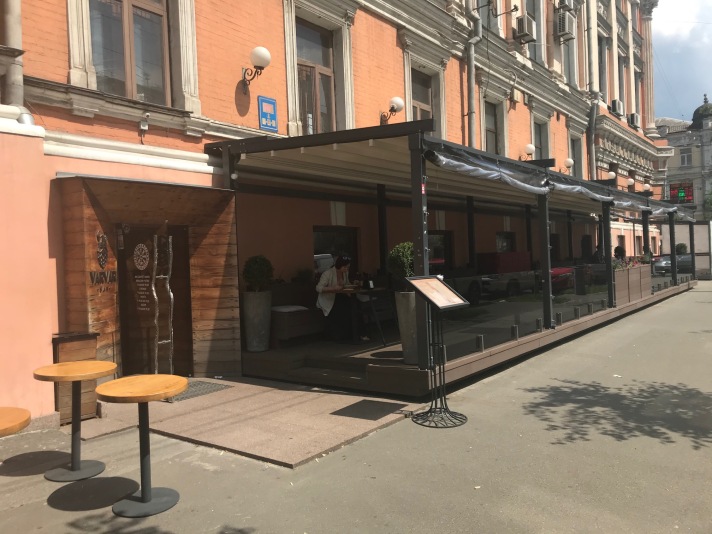
Varvar Patio 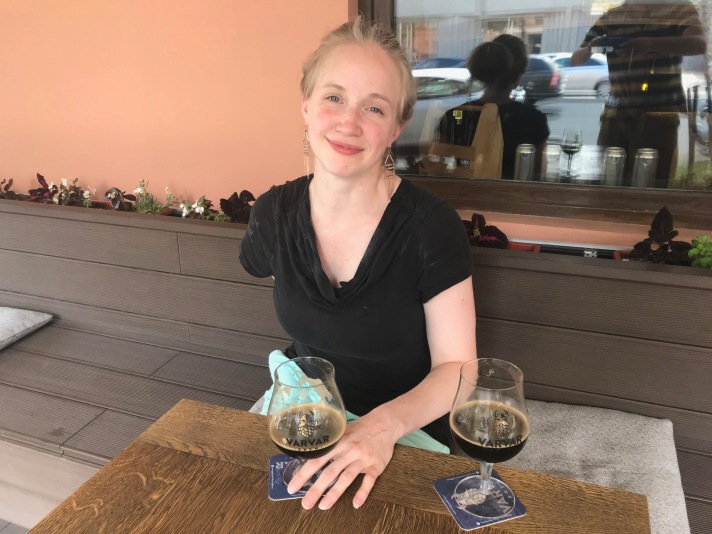
Varvar Beers
Solomianska Brewery – Solom’yans’ka Sq
If you’d like more of an adventure, consider this brewery. It’s a bit far from the city center, southwest of the main train station, but the location means they can afford more land and offer a large biergarten-type patio. It is a bit set back from the busy road it sits off, and you can sit outside and watch people enjoying a small park nearby. The brewery offers its own beers, which you can try by the pint or in a sampler. There are also tasty snacks that will leave you with enough money left over for another beer. The food is less trendy and a touch more local here. They also offer cocktails and spirits. If you make it out there, go a little further and visit the Oleg Antonov State Aviation Museum where you can get up close to massive helicopters and interesting Soviet-era aircraft from World War II and after.
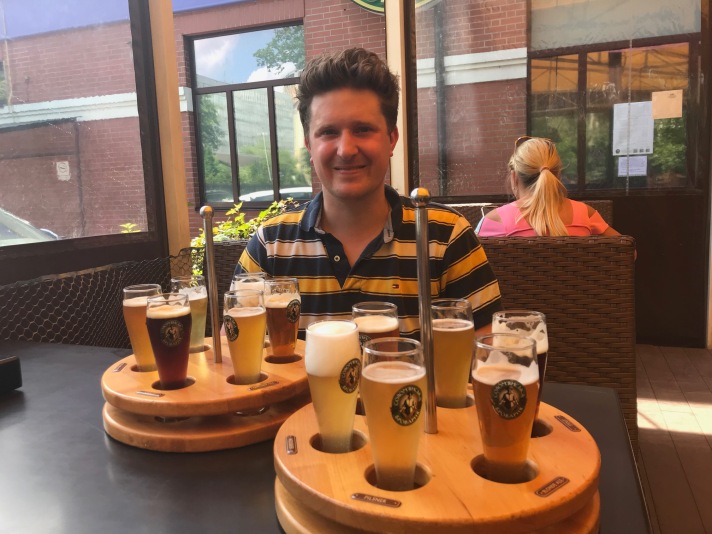
Solomianska Brewery Taster 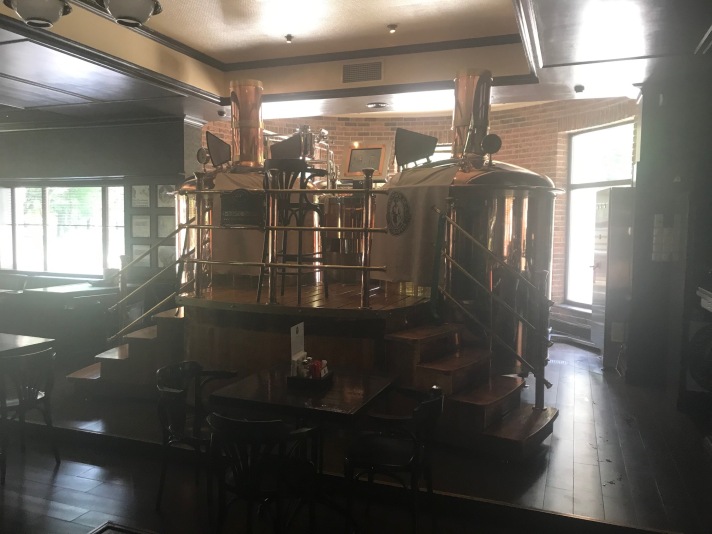
Solomianska Brewery Vats
Other Notable Mentions – More than Beer Options
Kyiv Food Market – Moskovska St
Housed in the former State Armory building, the market features many food and drink venues to satisfy whatever craving you may have. Seating is both indoor and outdoors and the atmosphere is relaxed, even when busy. If you are out with non-beer drinkers, you can go to the Varvar stand inside to get your beer while they peruse the cocktail bar on the first floor or the wine bar on the second. Everyone can find what they want for lunch, be it Italian, seafood, Chinese, Vietnamese, a burger or dog, or even just a great slice of cake from Milk Bar, which makes American-style desserts that ease a bout of homesickness.

Kyiv Food Market 
Inside Kyiv Food Market 
Varvar inside Kyiv Food Market
Bilyy Nalyv / 1 € inside Gastro Family Market – Baseina St
Within Gastro Family Market in the center of Kyiv, you can find lots of beverages on tap, although the one-euro logo is a bit stretched with today’s exchange rates. Nevertheless, the drinks are good value. A few beers are on tap, but don’t expect too much information beyond a one-word description like ‘light.’ There is also normally four types of cider on tap, some of which can border on cloying (looking at you, rose), but for the price are a nice afternoon refreshment. Interestingly, there is also a few types of wine on tap, or you can choose a bottle of Ukrainian fizz for a reasonable price. While in the market, there are about a half dozen food places to try as well, all of which are connected to larger restaurants around the city.
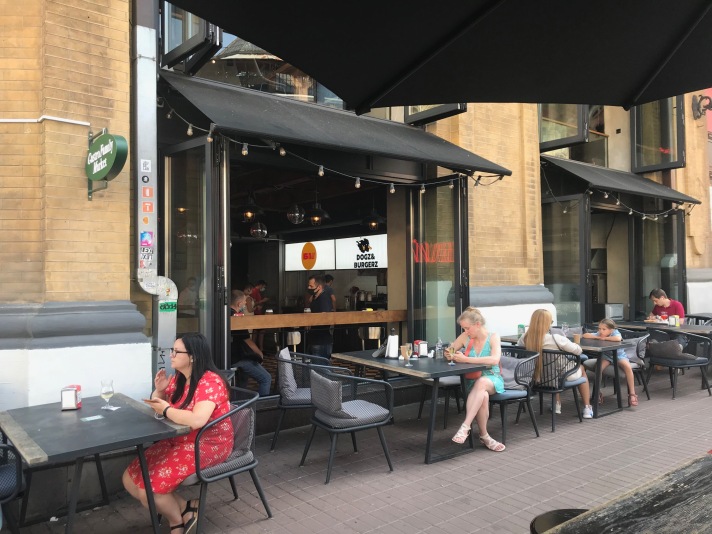
Gastro Family Market 
Bilyy Nalyv inside Gastro Family Market
UK Council for Graduate Education (UKCGE) Research Supervision Recognition
Amid the turbulence of the Covid-19 pandemic, I found time to complete the UK Council for Graduate Education (UKCGE) Research Supervision Recognition application. The programme sets a benchmark for good practice in research supervision and provides recognition of good research supervisory practice, recognised by a national body.
The programme and the associated framework is focused on ten criteria which are: The recruitment and selection of research students; good supervisory relationships with candidates: good supervisory relationships with co-supervisors; supporting candidates’ research projects; encouraging candidates to write and giving appropriate feedback; keeping the research on track and monitoring progress; supporting candidates’ personal, professional and career development; supporting candidates through completion and final examination; supporting candidates to disseminate their research; and finally, reflecting upon and enhancing supervisory practice. I developed an application around these ten criteria in which I identified and evidenced my supervisory good practice. It offered an opportunity to explain, justify, and underpin my practice with contemporary literature, and also speak to previous doctoral students that I have supported in order to seek their views of practice and support. Completing the process highlighted to me how diverse my experience has been, supporting numerous different projects in a range of research areas and how diverse the backgrounds of those that I have supported have been. I have supported students from China, Vietnam, Switzerland and Germany to completion and I am currently supervising students from China, Nigeria, Ghana, Oman, Germany and Italy.
I received a positive outcome to my application, so I am now a UKCGE Recognised Research Supervisor. The process and feedback were somewhat uplifting. It was nice to read the positive feedback, which concluded:
“It is no surprise that you have twice been shortlisted for the Excellence in Doctoral Supervision Award at your university. Without hesitation, this application satisfies all criteria. It was a pleasure to review.”
It was nice to read this, after so much striving to get papers published in journals, leading to reviewers saying ok, reasonable or acceptable for publication. It is nice to receive a positive and uplifting review, in such a challenging time.

Oleg Antonov State Aviation Museum
One of the most interesting and novel places in Kyiv is the State Aviation Museum. It has a wide range of soviet aircraft and technology. Like many displays in Ukraine, it is possible to get up close and personal with the aircraft. It is possible to walk right up to and around the planes and even enter a few for a small payment. The aircraft they have are unique and diverse and include fighter jets, civil aircraft, helicopters, and surveillance aircraft. The museum is only a short drive from the centre of Kyiv and is close to Solomianska Brewery, which is worth a stop if you are in the area.
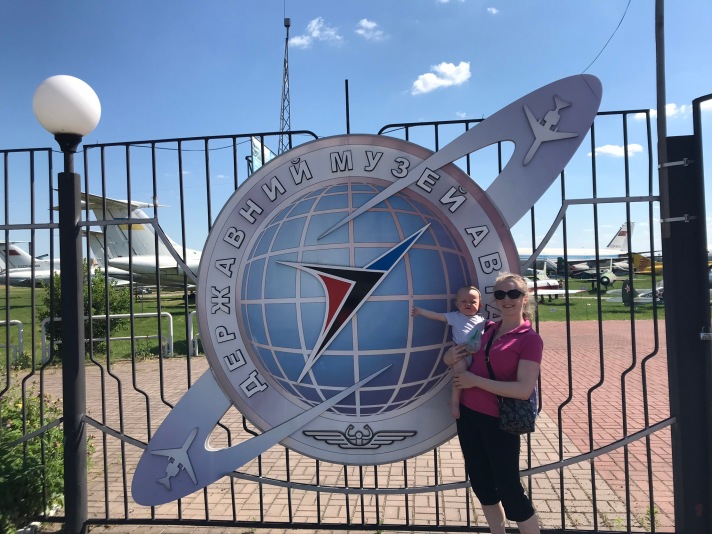
Oleg Antonov State Aviation Museum 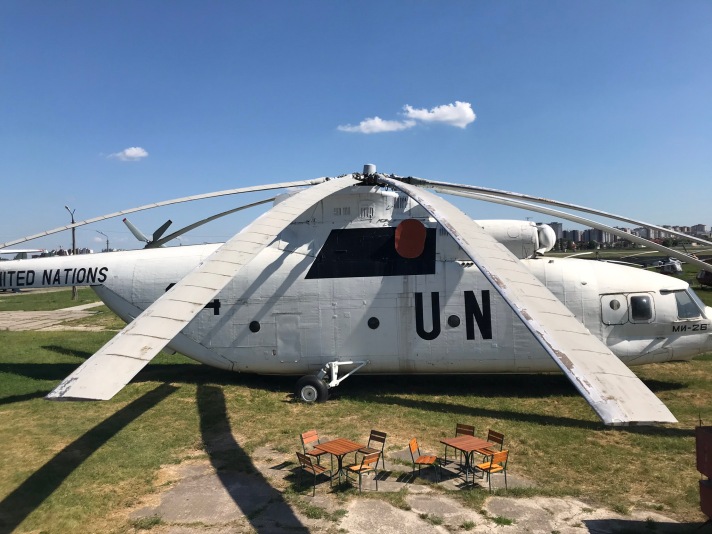
Mil Mi-26
Seeing the Mil Mi-26 helicopters’ size was incredible, they were bigger than many of the planes and had a large rota span. Standing next to the aircraft and seeing the planes’ size difference was neat and seeing the unique design of the Antonov An-71 surveillance plane was a highlight. The museum is well worth a stop for a couple of hours whether you are an aviation enthusiast or not. I am not a particular aviation enthusiast, with my aircraft expertise mainly coming from my frequent travel, but it was an interesting and fun day out.
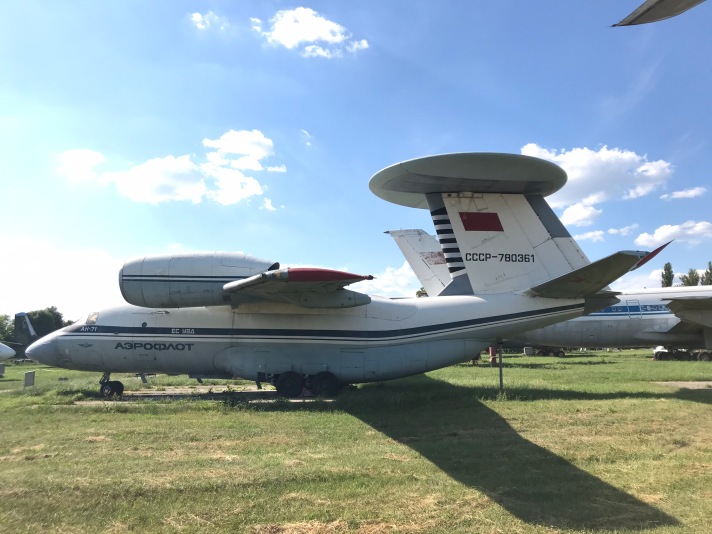
Antonov An-71 
Family Fun 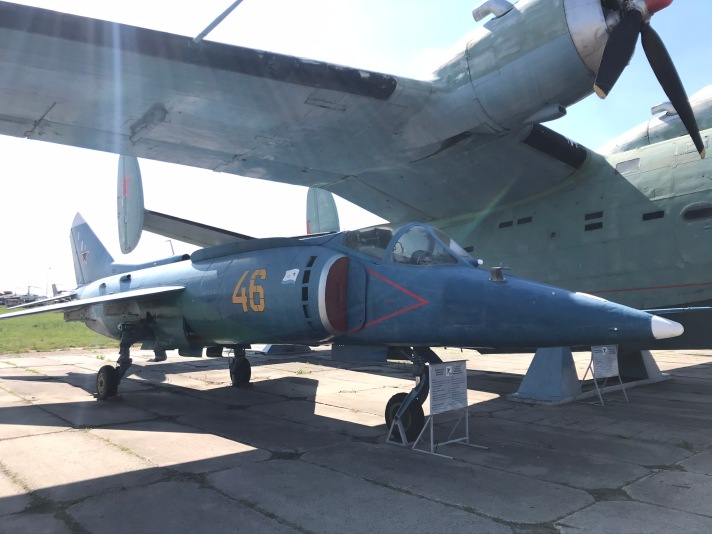
Yakovlev Yak-38 under the wing of a Beriev Be-6 Hydroplane
The Last Flight to Kyiv before the Border Closes
Nearly exactly two years after getting PNG’ed from Moscow, the spread of the Corona virus has led to the air transport system to buckle and near collapse, as demand for travel diminishes and countries have started to close their borders. Ukraine has been one of the first countries to close their borders, first to Foreigners and now to everyone, and they are banning all international departures and arrivals. This led me to have to rush to get a ticket back, booking an Austrian Airlines ticket on early Sunday afternoon to get home on Monday morning. This reminded me that my life over the last 6 years has been anything but dull.
The tickets back to Kyiv were instantly sold out when it was announced the borders would be closed, as Ukrainians working across Europe seek to get home to buckle down and support family. I managed after checking every 10 minutes for 3 hours to book a seat, which had come available. The elation of being able to get home to be with my family, for what could be a two-week, four-week or who knows maybe a twelve-week lock down. But alas an hour later a text message saying both my London to Vienna and the Vienna to Kyiv flight had been cancelled. Trying to call both Austrian and Lufthansa who the ticket was booked with was impossible, the phone lines kept dropping well before the expected over two hours wait time could be waited out. The only consolation was getting a message that the London to Vienna flight was reinstated. Earlier in the afternoon, the Austrian Government had recommended all Austrian citizens left the UK, due to its laissez faire approach to virus control, which might have had something to do with it.
Then late that night I received a text I had been moved to a special Ukrainian International Airlines flight from Gatwick. A much longer journey to the airport, but I could get home. Having never flown Ukrainian International Airlines and deliberately avoiding it, this was the second time in two weeks, after another long night of flight changes when the KLM plane operating my flight from Bristol at 6am on a Thursday morning had a bird strike at 10pm the night before, which had knock on consequences. The check in line at Gatwick was long and slow, and despite the Ukrainian Ministry of Foreign Affairs highlighting as travelling on a diplomatic passport, I was still able to travel, the check in agents did not agree. I was lucky another family in the same situation had already started the process of contacting the right people to provide the assurances we were good to travel. So after a letter from the Ukrainian Embassy in London had been faxed to the airline, providing assurances we would be allowed in the country we were good to go.
The flight was somewhat somber; it had a quieter tone than the recent flights I had taken. We all did not know what we were returning to and how long the lock down would last. Plus, many had travelled from across the country and self-connected in London to get the last flight back. Of course, the nuances of Ukrainian International Airlines managed to cheer me up. I am not familiar with another airline which allows you to buy bottles of herbal liquor onboard for the journey. Although, it did not feel like the time for such a drink.


